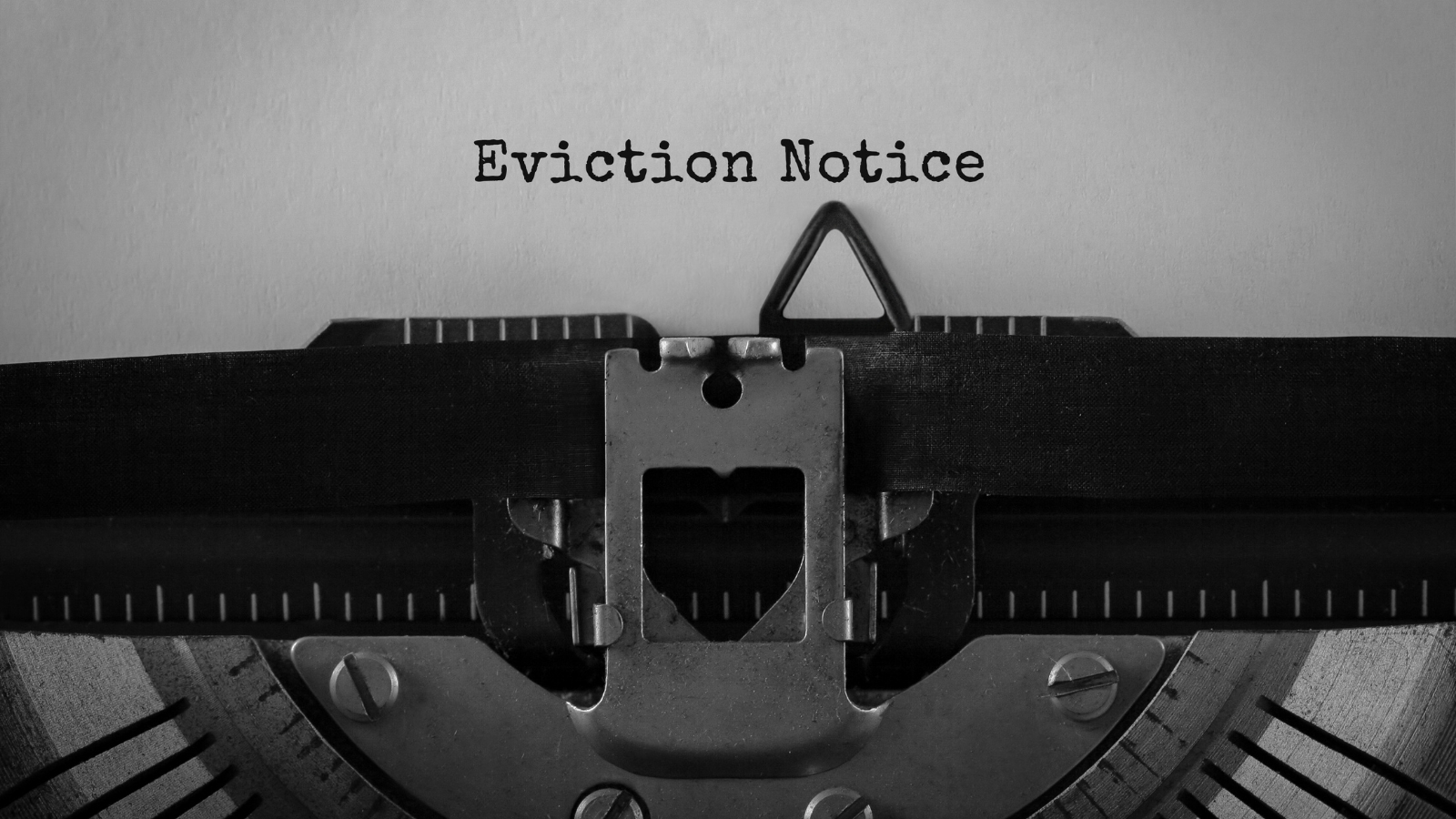Eviction Process Impacts 1 out of Every 9 Renter Households in DC, mostly in Black and Low-Income Communities, Report Concludes
A new Georgetown report examining housing instability in DC demonstrates the importance of examining eviction filings in addition to formal evictions to address the economic and racial inequalities in the city.
The report reveals deep racial and geographic disparities in the eviction process and makes important policy suggestions to curtail eviction filings.
Report authors Eva Rosen, assistant professor at Georgetown’s McCourt School of Public Policy, and Brian McCabe, associate professor of sociology in the College, utilize data from the court system to track both eviction filings and formal evictions from 2014 to 2018.
The report finds that 1 out of every 9 renter households in the District is impacted by the eviction process. The authors highlight high degrees of concentration in both the rate of filings and formal evictions in Wards 7 and 8, where many Black and low-income residents live.
“This is an economic and racial justice issue,” Rosen says. “We need policies that support communities, not ones that perpetuate a cycle of instability and homelessness through evictions and court hearings. This is especially important as the District recovers from the economic shock of the ongoing Covid-19 pandemic.”
More than 15 Georgetown students, including undergraduate, McCourt School and PhD students, contributed to the report by collecting and coding data, researching eviction policies and learning about court processes.
The Eviction Process
To file a suit against a tenant, DC landlords pay only , the lowest fee in the country. A filing initiates a legal process that may require several court appearances and, in the end, may cause tenants to fall further behind financially due to court fees.
Eviction filings are far more common than executed evictions and create significant barriers to housing in the long-term, the authors note.
The report notes that it is common for landlords to file multiple eviction filings for a specific household in an effort to collect rent, a tactic referred to as serial eviction filing.
“Not only did we find evidence that shows serial filings are pervasive for tenants in the District,” says Rosen, “but we also found that only a handful of landlords, about 20, are responsible for 47% of eviction filings even though they own less than 21% of rental units.”
Evictions and Inequality
According to the report, nearly 60% of all eviction filings occur in DC Wards 7 and 8, even though only about one-quarter of renters live in those neighborhoods. In Ward 8, one in four renter households received an eviction filing in 2018.
One of the leading causes for evictions, the authors note, is rising rents coupled with limited housing subsidies for low-income households.
In 2018, the authors explain, 23% of eviction filings were filed against subsidized renters, including those living in public housing, receiving a housing voucher or living in a low-income housing tax credit building.
“While rising rents and unaffordable housing are not new issues in DC, our research offers insight into urgent policy changes that can better support renters throughout the District,” says McCabe.
While the city offers several affordable housing options, the authors say these are not enough to fully address the scale of the issue and caution that the ongoing pandemic will only increase the need for support.
Making New Policies
The authors offered several policy suggestions, recently passed by the DC City Council,
as stopgap measures to help move the District toward greater housing security, but also note the need for long-term solutions that comprehensively address the economic and racial justice issues interconnected with the housing affordability crisis.
“We need to disincentivize landlords from using eviction filing as a tool for rent collection by increasing the fee costs to file a suit,” says Rosen. “For the small handful of landlords that file nearly half of the District’s eviction filings, there is an opportunity for policy interventions that offer alternative methods for settling landlord-tenant issues.”
The city also approved the report’s recommendation to ban evictions for rent owed under 0 and prohibit lease language that waives a tenant’s right to a 30-day notice of eviction filing.
Guarantee Affordable Housing
On the tenant side, McCabe and Rosen point out the need for increased tenant legal support and advocate for sealing eviction records to prevent landlords from discriminating against tenants in future housing searches.
Given that the findings show many eviction filings occurred for small sums of money, the authors explain that short-term assistance or emergency rental support could serve as a tool for eviction prevention.
They say this would help tenants in temporary financial circumstances – a suggestion particularly relevant given the economic challenges presented by the ongoing Covid-19 pandemic.
In the longer term, the report recommends expanding programs that offer housing vouchers and permanent rental supplements to better respond to the scale of need in the District.
“The current efforts only support a portion of families,” McCabe says. “The most effective way to prevent evictions is to guarantee affordable housing through a range of programs targeted at families of varying income brackets.”
To read the full report, click here. For further insight on housing instability and policy, follow faculty experts Eva Rosen (@eva_rosen), author of the new book The Voucher Promise, and Brian McCabe (@ordinarysquares), author of No Place Like Home, on Twitter.
View a recording of the virtual event discussing this research at the link below:
